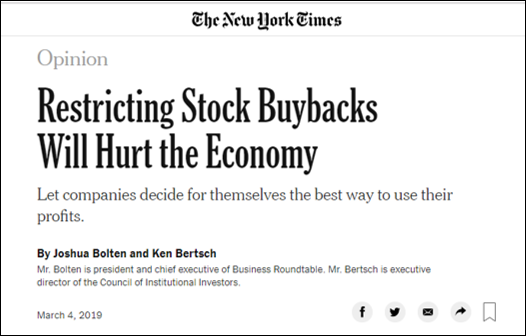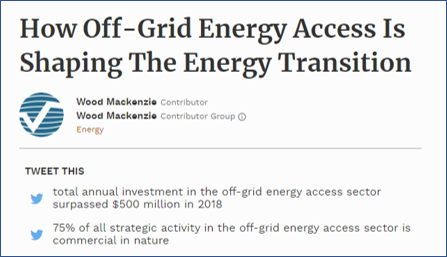Every morning, we run The Narrative Machine on the past 24 hours worth of financial media to find the most on-narrative (i.e. interconnected and central) stories in financial media. It’s not a list of best articles or articles we think are most interesting … often far from it.
But for whatever reason these are articles that are representative of some sort of chord that has been struck in Narrative-world.

Rusty and I like to comment or snark on these articles with each other, MST3K-style, so we’re publishing that, too. If you want to channel your inner Crow T. Robot or Tom Servo, feel free to join us in the Comments section!
Restricting Stock Buybacks Will Hurt the Economy [NY Times]

A big part of legal strategy is venue shopping – finding the most advantageous set of courts and judges for your particular interests. This is no less true in narrative strategy, although it’s often more advantageous to go against type (liberal views published in WSJ op-ed, conservative views published in NYT op-ed). That’s because informational impact is measured by how much a piece of text changes people’s minds, not its echo-chamber effect, and you’ve got a better chance of doing that when you’re not preaching to the choir. Of course, you’ve got balance that against the willingness of the non-choir media platform to run your (to them) crackpot views. What’s interesting to me is not that there’s a very public op-ed debate over stock buybacks, but that the protagonists are choosing the NY Times as the venue.
Flamboyant billionaire who counts Donald Trump as a friend is lurking in the shadows at Regal Petroleum [ThisIsMoney.co.uk]

If you haven’t yet seen What We Do In the Shadows, it’s really quite good.
“Vampire housemates try to cope with the complexities of modern life and show a newly turned hipster some of the perks of being undead.”
Somehow I think Victor Pinchuk (and probably the “reporter” of this article) would feel right at home.

How Off-Grid Energy Access Is Shaping The Energy Transition [Forbes]

Honestly, when I see “Forbes contributor” as a line item in someone’s bio, it’s an immediate red flag for me. Might as well scream “I write infomercials for a living.”
States consider asset transfers as way to shore up plan funding [Pensions & Investments]

We tend to see state-backed pension funds as somehow separate from either the P&L or the balance sheet of the state government, when in truth they are one and the same. Yes, we will see a lot more of these balance sheet transfers going forward. The problem, of course, is that you can’t really sell these government-owned assets, not in the modern Zeitgeist of anti-privatization and anti-austerity. So it’s definitely a funny-money support for pension fund obligations, but we live in a permanently funny-money world.
Aggregate Demand: Definition, Formula and Why It’s Important in 2019 [The Street]

I expect we’ll see a lot more of these primer articles on economic theory heading into the 2020 election. The last time economic theory was front and center in a presidential election was supply side economics and Ronald Reagan in 1980. Expect the same with Modern Monetary Theory and the Democratic primary and national candidate today. And yes, there’s an ET note for that.
Apollo sub Redding Ridge issues first euro CLO [Global Capital]
I mean … of course they are. I gotta tell you, though, my spidey-sense is not tingling about this stuff yet. Is it too much money deperately searching for yield? Absolutely. Is it a systemic risk? I just don’t think we’re going to run the same gag twice.
US STOCKS-Futures up on growing hopes of U.S.-China trade deal [Reuters]
US-China trade talks are the new Risk-On / Risk-Off. And yes, there’s an ET note on this.


Love being let in on your and Rusty’s back-and-forth on these - really great add.
RE, putting pro-buyback pieces in the NYT: isn’t that an example of what you note, meaning, it’s more effective to put your pro-buyback piece in an anti-buyback paper like the NYT?
RE, state pension plans and the balance sheet - they are absolutely the same, but as the situation gets more perilous, states will do their best to make them look separate.
RE, aggregate demand - massively oversimplified, but AD has always seemed easy to me (people want stuff); whereas, AS is hard as you have to acquire capital, organize resources and put many people’s shoulders to the grindstone to create supply. I know it’s more complicated than that, but still, demand is easy/supply is hard in the real world even if not in super-smart economic theories. To wit, just ask your kid if they want to sweep out the garage or go to the mall to buy a new something they want.
RE, Forbes - was it better twenty-plus years ago like I remember, or have I gotten (hopefully, a little) smarter?